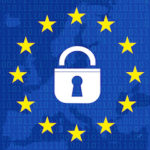 The United Kingdom’s vote on June 23 to withdraw from the European Union was just that: a vote. The details of the Brexit are still anybody’s guess — from if or when the UK will actually leave the EU, to how that would affect the British, European, and global economies, to countless other considerations.
The United Kingdom’s vote on June 23 to withdraw from the European Union was just that: a vote. The details of the Brexit are still anybody’s guess — from if or when the UK will actually leave the EU, to how that would affect the British, European, and global economies, to countless other considerations.
With the understanding that any speculation is of limited use, we nonetheless asked a group of EU-based meeting professionals to consider what this could mean for the international meetings business: Ben Hainsworth, executive director of K.I.T. Group Gmbh, headquartered in Berlin; Alessandro Cortese, CEO of the European Society for Radiotherapy & Oncology (ESTRO), based in Brussels; and Nata Nambatingué, congress manager for the European Society of Cardiology (ESC), in Sophia Antipolis, France.
What could the Brexit mean for international meetings and business events?
BEN HAINSWORTH I am pretty sure that beyond a short period of uncertainty, the industry will continue much as it did before. I am confident that the desire to meet and the resilience of the industry have navigated far more disruptive shocks, but these are uncharted waters, and who knows what surprises await us.
ALESSANDRO CORTESE When looking at international associations, these are groups that philosophically will, by majority, not like the Brexit concept. In the case of the European associations, who have their raison d’être in the union and collaboration between countries, and are notorious flirters with EU institutions for advocacy purposes, an effect has to be expected in the middle term. Some organizations will prefer to opt out from England for meetings that were not yet confirmed with decisions still pending (probably impacting 2018–2023).
I mention England and not Britain intentionally: Scotland and Ireland probably have momentum to gain a strong reputation, and maybe consolidate an attractive role as destinations for international meetings. Also, looking at England, probably London will be considered as an exception, as it has many assets to attract international events. However, for the rest of England, I think the impact will be visible two to three years from now.
Regarding corporate business, an impact is also to be expected, and probably a faster one than on the association side. Companies are by definition risk-averse entities. The exit procedure will trigger a long phase of instability of two years only to negotiate the possible leaving conditions, and 10 more to possibly rewrite rules and commercial treaties. In this phase, alternatives will be sought.
Also, not all industries will have the same assumptions and analysis of the situation. For instance, I would not expect the health-care sector to be impacted. On the contrary, the most fragile sectors could be revealed to be finance, energy, and transportation.
NATA NAMBATINGUÉ For the moment, no one knows really to what degree it will impact our industry, but we can assume it will remain limited, especially within the next two or three years, which corresponds to the length of the exit procedure. This is what we can hope, because as a European health-care organization, it is in our DNA to gather different nationalities together, and looking at the advances in the health-care sector over the last century, it is paramount to continue in that direction, stay open and willing to share. For these reasons, the ESC counts 56 member countries to date, which is twice more than the current EU.
In the medical sector, the main fear is not related to logistical considerations, but more to content matters, which could have an impact on our industry on a longer term. At the research level, for instance, there are UK doctors in most, if not all, of the EU-funded projects, so we can anticipate issues in terms of intellectual property. Foreign doctors based in the UK and working on those projects will also be impacted, and some of them won’t be able to stay.
We are in a new situation and no one can predict the way things will evolve. That said, being a European organization, we will obviously have to monitor the situation very closely.
Do you think groups will reconsider meeting in the UK — short term and long term?
HAINSWORTH For international meetings, I do not see any immediate cause for concern beyond some short-term indecision and volatility. Some European meetings may well think twice before allocating new business to the UK, but on the other hand, a lower pound might even provide an opportunity.
In the longer term, we will have to monitor trade negotiations with the EU and the rest of the world and how that affects business in general. Also important will be the evolution of taxes, freedom of movement, labor law, etc.
CORTESE In the short term, contractual rigidities should overcome the emotional reaction. And, again, nothing will move politically for a few months, at least. However, the decisions for meetings that will be made during the next two to three years will probably be impacted by the psychological climate and the tone (probably an emotional one) that the media will take to comment on the evolution of the situation at a political and institutional level.
Also, there’s an important distinction to make: While the pound-euro exchange rate will probably not change much, the pound-dollar relation is expected to evolve in favor of the American currency (some studies predict up to a 30-percent decrease in the value of the pound).
In other words, if I were in a marketing or sales position in Britain, I would make a strong priority in trying to attract international business generated in the U.S. Despite an expected increase for the cost of local services, earning in dollars and spending in pounds might become a favorable scenario for the next few years.
NAMBATINGUÉ Hopefully not, because from a pure operational point of view, things won’t change drastically as, prior to the Brexit, the UK already had a different currency (non-eurozone) and different immigration rules for business visitors (non-Schengen country) compared to its neighbor countries. Customs, freight logistics, and ease of temporary import could, however, become more complicated, but we consider it as a minor issue.
What is the potential ripple effect for meetings in other EU countries?
HAINSWORTH From my experience in the association sector, I think that things will be pretty much business as usual. While we are certainly in for some turbulent times, I would suggest that the need to come together has never been greater.
CORTESE There are other areas of concern in Europe, mainly linked to security and terrorism. On a European map, if we highlight the areas that carry risks of any nature, several of the traditional destinations for meetings will stick out. Looking at the positive side of things, there is a unique window of opportunity for new destinations to profile themselves and increase their market share and potential of attraction.
NAMBATINGUÉ Neighbor countries might benefit from this situation and see some meetings coming to them, but this is not what we should aim for, because London representatives have been very successful in attracting events over the last decade, with a great level of professionalism and excellent infrastructures.
Were you surprised by the vote?
HAINSWORTH I was en route to [the PCMA Education Conference] in St. Louis when I heard the announcement — in Heathrow Airport, of all places. I was and remain very disappointed by the outcome of the referendum, but with hindsight the social and political context seem to have created a certain inevitability, not to mention the appalling quality of debate during the so-called campaign.
CORTESE The socioeconomic climate in Europe has been on a negative trend for more than 10 years, with the traditional institutions and political movements becoming progressively more and more disconnected from the citizens they’re supposed to represent. In this unstable environment, new movements have gained momentum by raising opportunistically the wrong questions and giving the answers that catalyzed discontent.
So, the answer is yes and no: It is surprising that the Brexit campaign obtained a majority vote at the referendum, despite all the rational arguments against Britain dropping its membership to the EU. On another hand, it was probably a question of time: The bubble did burst in Britain now, but it could have blasted as well in another country, as the causes for discontent are more profound than what a single country can try to manage.
NAMBATINGUÉ We have been more disappointed than surprised, because looking at the increasing number of Euro-skeptics all around Europe, and in particular overseas, there was a significant risk to end up in such a situation. In our opinion, the referendum could have been presented differently, giving the opportunity to UK citizens to aim for a new EU instead of letting them choose only between staying in the current EU system or leaving.
What the DMOs Say
VISITBRITAIN Carl Walsh, Director, Travel Trade and Business Visits, North America
We remain confident that conference and event organizers will continue to recognize Britain’s event expertise, world-class facilities, and connectivity as priorities when determining destinations for business events, and we look forward to welcoming delegates to conferences and exhibitions in the UK in the coming years. As yet we have not surveyed any meeting planners. However, tourism in general has the potential to benefit from the weakened pound, and online travel agents and tour operators have been telling VisitBritain that they are experiencing an increase in online holiday searches for travel to Britain.
LONDON & PARTNERS Chris FJ Lynn, Vice President, North America and Emerging Markets
The UK is still a member of the European Union for at least the next two years. For now, nothing has changed. Longer term, we will need to establish more detail about the terms of the negotiations on the UK’s exit from the EU before we are able to make any assessment. However, the mayor of London, Sadiq Khan, has ensured that London — as a key driver of the UK’s economy — will have a voice in those negotiations.
London is open for business and tourists, and the city’s strengths will remain unchanged: London is one of the best places in the world to do business and to invest, the leading European center for technology and life sciences, with several world-renowned universities, and the capital is one of the most desirable cities to live and work in.
VISITSCOTLAND Neil Brownlee, Head of Business Events
It is far too early to know the full impact of the result or the implications. As you know, Brexit has not actually occurred, so there is no change to anything just now or for a couple of years.
We are continuing to work closely with our partners and stakeholders to ensure all types of business events and delegates from around the world continue to come to Scotland to enjoy its vibrant cities, spectacular landscapes, its rich heritage, and, of course, the warm welcome of its people. It is business as usual within what we know. The message is: Keep bringing your meetings to Scotland and the UK! You are welcome, and we’ll look after you as we always do.
TOURISM IRELAND Niall Gibbons, CEO
The decision to leave the EU gives rise to two factors which could impact on our business. Firstly, general economic uncertainty can cause consumers to be more cautious with their discretionary spend, and this may impact on tourism flows in the short to medium term. Secondly, movements in currency impact on competitiveness, and British visitors to the eurozone, for the short term, are likely to see holidays being more expensive. Obviously this is not the case in Northern Ireland, where we may see some short-term gains.
Tourism Ireland is the agency set up under the Belfast/Good Friday Agreement to market the island of Ireland overseas. The vote has no impact on this matter, and we look forward to working with industry partners across the whole island of Ireland to maintain the strong growth we have seen in tourism in the last number of years.



